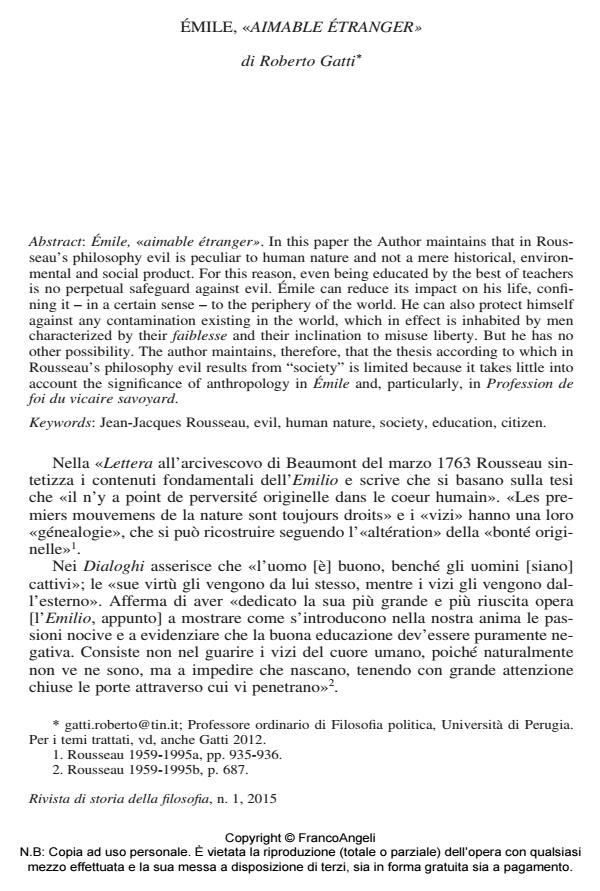Émile, «aimable étranger»
Titolo Rivista RIVISTA DI STORIA DELLA FILOSOFIA
Autori/Curatori Roberto Gatti
Anno di pubblicazione 2015 Fascicolo 2015/1
Lingua Italiano Numero pagine 13 P. 93-105 Dimensione file 544 KB
DOI 10.3280/SF2015-001008
Il DOI è il codice a barre della proprietà intellettuale: per saperne di più
clicca qui
Qui sotto puoi vedere in anteprima la prima pagina di questo articolo.
Se questo articolo ti interessa, lo puoi acquistare (e scaricare in formato pdf) seguendo le facili indicazioni per acquistare il download credit. Acquista Download Credits per scaricare questo Articolo in formato PDF

FrancoAngeli è membro della Publishers International Linking Association, Inc (PILA)associazione indipendente e non profit per facilitare (attraverso i servizi tecnologici implementati da CrossRef.org) l’accesso degli studiosi ai contenuti digitali nelle pubblicazioni professionali e scientifiche
In this paper the Author maintains that in Rousseau’s philosophy evil is peculiar to human nature and not a mere historical, environmental and social product. For this reason, even being educated by the best of teachers is no perpetual safeguard against evil. Émile can reduce its impact on his life, confining it - in a certain sense - to the periphery of the world. He can also protect himself against any contamination existing in the world, which in effect is inhabited by men characterized by their faiblesse and their inclination to misuse liberty. But he has no other possibility. The author maintains, therefore, that the thesis according to which in Rousseau’s philosophy evil results from "society" is limited because it takes little into account the significance of anthropology in Émile and, particularly, in Profession de foi du vicaire savoyard.
Parole chiave:Jean-Jacques Rousseau, evil, human nature, society, education, citizen
Roberto Gatti, Émile, «aimable étranger» in "RIVISTA DI STORIA DELLA FILOSOFIA" 1/2015, pp 93-105, DOI: 10.3280/SF2015-001008